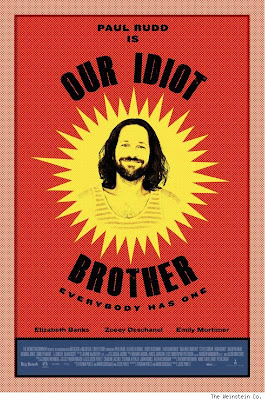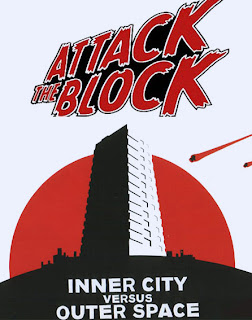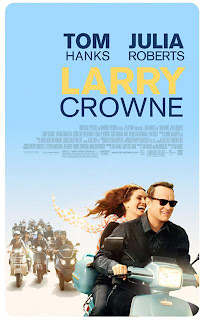
I have mixed feelings about the “Planet of the Apes” franchise. The 1968 original is one of my favorite sci-fi films. In spite, or perhaps because, of the cheesiness and ridiculousness of that film, it brings joy to my heart every time I catch a few minutes of it on TV. In high school, because we were really cool, two of my best friends and I once rented every “Apes” film Blockbuster had in stock and watched them all back-to-back. We probably should have tried to find dates instead but oh well. I loved this franchise. Then the summer of 2001 came and brought with it Tim Burton’s reimagining of “Planet of the Apes.” It’s a terrible film. Just terrible. Honestly I get a little angry every time I even think about it. In general I have a pretty open mind as far as what films others like and dislike; it’s all subjective. But I judge harshly anyone who actually likes Burton’s “Apes”; that movie sucks, plain and simple. The 2001 version left a bad taste in my mouth and took away some of my zeal for the “Ape” universe. I couldn’t muster up any excitement for “Rise of the Planet of the Apes” when the trailer started running and I just wasn’t up for throwing my support behind another reimagining. But the overwhelmingly positive buzz surrounding this movie finally wore me down and I was able to step into the theater with guarded optimism.
Will Rodman (James Franco) is an elite geneticist on the verge of a cure for Alzheimer’s through his experimentation with a group of apes. Just as he is ready to present his findings to his company’s board of directors, something goes horribly wrong and an ape on Rodman’s drug gets loose and causes havoc before being killed. With his findings rejected and the rest of his apes put down, Will’s life is changed when he is given charge of a newborn ape (the offspring of the ape who went mad) who becomes an unlikely companion for his father, Charles (John Lithgow), who is slipping further and further into the darkness of the disease Will had hoped to eradicate. The ape, named Caesar, is far from ordinary, however, and soon Will finds that Caesar’s cognitive abilities were enhanced through the drug that was given to the ape’s mother during her pregnancy. Will uses these findings to create a new, better drug that works wonders on Charles and transforms him back into the person he once was. Their happy new life is threatened when Caesar, now a full grown beast, attacks a neighbor and is locked away in a shelter. Here Caesar discovers his true power and stages an uprising that will eventually change the face of the world and lead to Charlton Heston’s horrible discovery.
I must say I didn’t love “Rise of the Planet of the Apes” as much as many of my colleagues did. We’ll get into the reasoning for this in a bit. But what “Apes” does exceptionally well, however, is provide an example to Hollywood of how to make a quality summer blockbuster without breaking the bank. “Cowboys and Aliens” was tagged with the “bust” label last month but it certainly wasn’t alone in failing to perform relative to the budget. “Apes” has a much more reasonable budget ($90 million) than many of the other blockbusters despite the fact that it has a brand and a history to rely upon, making it easier for the film to turn a profit in a shorter amount of time. (With overseas returns and DVD sales, “Cowboys and Aliens” will probably break even eventually but that won’t stop it from being considered a huge bust. Part of the issue is the engorged budget that “Apes” avoided.) In addition, the success of “Apes” wasn’t pinned on a single actor or pair of actors. We live in an age that is lacking in movie stars and more importantly, research will tell you that actors don’t draw audiences anymore, at least not the way they used to. Banking on the star power of a given actor or actress, especially when you throw in a huge budget, has become a risky proposition. I’ll be honest and tell you that I am still extremely actor oriented; there are many actors and actresses who can and will get me to a theater based solely on their involvement with a film. But I am by far in the minority these days. Franchises and brands (“Harry Potter”, “Twilight”, etc.) replaced actors in the hierarchy of Hollywood power some years ago and now we’re seeing that story, director, and good old fashioned word of mouth (read: “this blog”) are taking more and more pull away from this or that actor. “Apes” features a solid, well respected cast but almost all of the press and attention was smartly directed at the branding and the amazing special effects.
And make no mistake, the special effects of “Apes” is truly amazing. Andy Serkis, best known for his work as Gollum in the “Lord of the Rings” films, provided the movements and facial expressions of Caesar and several of the other apes and his work is breathtaking. I’m not sure exactly what award he should be nominated for as I’m not certain you can nominate a guy for Best Supporting Actor if he never actually appears on screen but he deserves some attention when Award Season rolls around. The blend of CGI with the actors and sets is seamless and the apes move effortlessly. It’s quite beautiful, really. Given how extensive the CGI work is on this film, it’s almost unbelievable that this is the film that had a lower budget than most of its compatriots. Director Rupert Wyatt (“The Escapist”) is relatively new to the scene but the structure of this film is that of a seasoned pro. Wyatt has earned himself a major pay raise on his next project. Franco gives an understated and honest portrayal that I appreciated very much. I never know what to expect with Franco and I think he takes the “quantity over quality” approach to choosing his roles. But as “127 Hours” showed, when he’s on, he’s an outstanding actor. Lithgow, too, is excellent and steals almost every scene he’s in. And like any good origin film, “Apes” gives the fanboys a few quality references to the source material it draws upon which I greatly appreciate.

The rest of the cast, however, fails to deliver. I think Bryan Cox is an outstanding actor when he’s asked to stretch himself but as the owner of the “ape refuge” that Caesar is sent to, he’s just Bryan Coxing all over the place, playing a caricature of the same character he plays in every movie. Frieda Pinto (“Slumdog Millionaire”) provides the inevitable love interest for Will but unfortunately the character is completely and totally worthless. A note to Hollywood: if you don’t invest in a romantic relationship then neither will we. Many of the side characters (the hothead neighbor, the cravenly ape attendant, etc.) are all painfully over-the-top and take away from the more centered, balanced personas of the main characters. All of these issues are nothing, however, in comparison to the cringe-inducing performance of Tom Felton. I thought Felton was probably the worst actor in the “Harry Potter” cast (Draco Malfoy) and after having seen “Apes”, I would guess that his best days are behind him. As the angry and power hungry lead handler in the ape shelter, Felton’s character is so paint-by-number that I actually let out an audible groan at one point and it infuriates me that this was the character given the opportunity to repeat Heston’s trademark “Apes” line. He may have single handedly knocked this film down a grade.
My real problem with “Apes”, though, is the mediocre script that plays out too much like a horror movie for my liking. The supporting characters do things they would never do and too much of the plot is driven by a chain of events that would have to happen exactly as they happen in the film’s narrative or else it would never work. For example, in the opening scenes an experienced, supposed world-class ape handler leaves the door to the rest of the facility (where Will is conducting his meeting with the board of directors) open while trying to essentially capture an ape that he knows to be hostile and ready to attack. I realize this is a small complaint but there are dozens of issues like this and it makes for a plotline that is too easy to poke holes through. “Apes” deserves better than the lackluster script it was given.
Overall, I found “Apes” to be a frustrating but worthwhile film. Its strengths are impressive and engrossing, particularly the relationship between Will and Caesar and the development of Caesar’s power. But its weaknesses make it impossible for me to recommend wholeheartedly. If nothing else, though, “Apes” has helped erase some of my memories of Burton’s version and might just help with my ape-related anger management issues.
Grade: B
Keep your stinking paws off me,
Brian



























